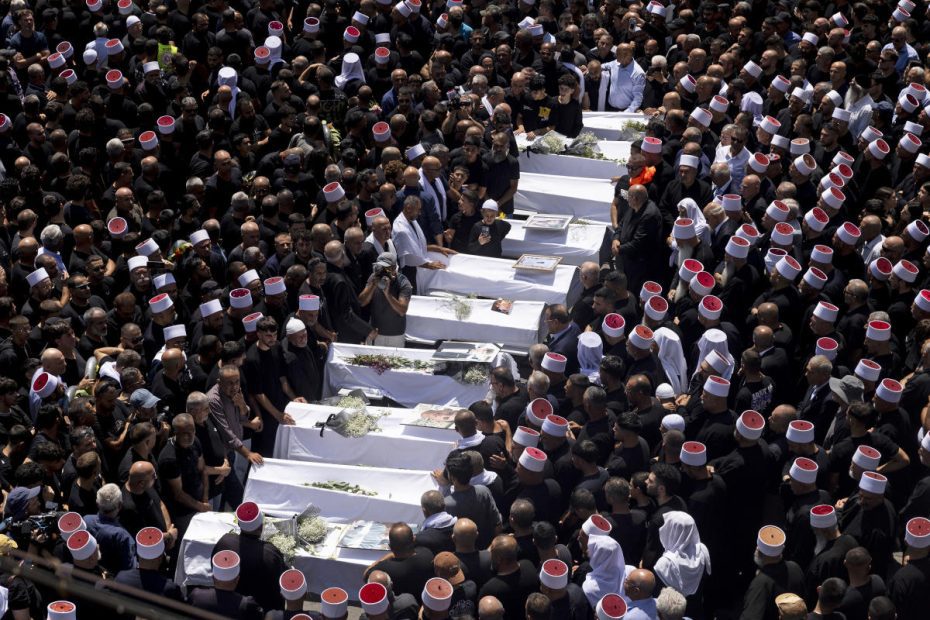Israeli officials have long known that they have a major problem on their northern border with Lebanon. A bigger problem, from their perspective, than the situation in Gaza. Many moderates expect that this will eventually resolve itself through an extended ceasefire, regardless of the absolutist and impractical official position on completely eradicating Hamas.
Israel’s border with Lebanon has already become a no-go zone. Tens of thousands of Israelis, who live closest to it, have been evacuated to hotels in and around Tel Aviv, some at government expense, others (mainly people in a geographical area a bit further away) on their own.
It is argued that this ongoing situation represents a de facto shrinking of the state of Israel itself. But the real problem here, we are told, is that Israel considers the capabilities of the Lebanese group Hezbollah to be far greater than those of Hamas. After all, the militant organization is said to have more than 100,000 rockets in its arsenal and tens of thousands of willing fighters.
That is why Saturday's rocket attack on the Druze village of Majdal Shams in the Israeli-controlled Golan Heights, which killed 12 children from the Arabic-speaking religious and ethnic group as they played on a soccer field near their home, is particularly worrying.
Israel blamed Hezbollah; the Iranian-funded and -equipped group denies responsibility. Hezbollah and Israel have been fighting for months, but this is the worst loss of life in Israel since October. (The deaths among Palestinians in Gaza are, of course, exponentially higher.) Israel is striking back, but many Middle East watchers now fear an all-out war between Israel and Hezbollah.
That is not a new concern, but the events of this past weekend have increased the danger.
When Israeli Prime Minister Benjamin Netanyahu, who is unpopular with Democrats, delivered a speech to Congress on Wednesday, excluding members who refused to show up, he found a legislative body distracted by the drama surrounding the upcoming presidential election.
The Middle East is no easy issue for Democrats, who have proven effective in recent days at stifling internal debate and dissent. President Joe Biden said Monday he was calling for major changes to the U.S. Supreme Court, including term limits and ethics reforms, an easy issue for Democrats to promote, as well as a constitutional amendment aimed at limiting the broad presidential immunity that the justices have approved — another easy issue for Democrats to promote, if not actually pass.
These proposed reforms are partly intended to shore up support for Kamala Harris, Biden’s replacement at the top of the Democratic ticket, and energize the progressive base. Biden has even used the phrase “limit the court,” which should give any level-headed person pause.
But the Middle East doesn’t stand still for election cycles or political conventions, and Biden could face a much tougher problem for Democrats as he remains president. And it’s worth noting that Harris was among those who didn’t show up to hear Netanyahu speak.
We urge Israeli restraint, as Netanyahu’s ultimate response to the shocking attack on children—which may have landed accidentally; we don’t know—will determine the likelihood of further loss of life. But the situation was already serious enough for airlines like Lufthansa and Royal Jordanian to cancel flights to Beirut and for governments, including the US, to issue a phalanx of warnings about the increased dangers in Lebanon.
Democrats have said Biden is fully capable and committed as the sitting president.
There will still be much work to be done, but not all of it will reflect how the president wants to spend his time.
_____

